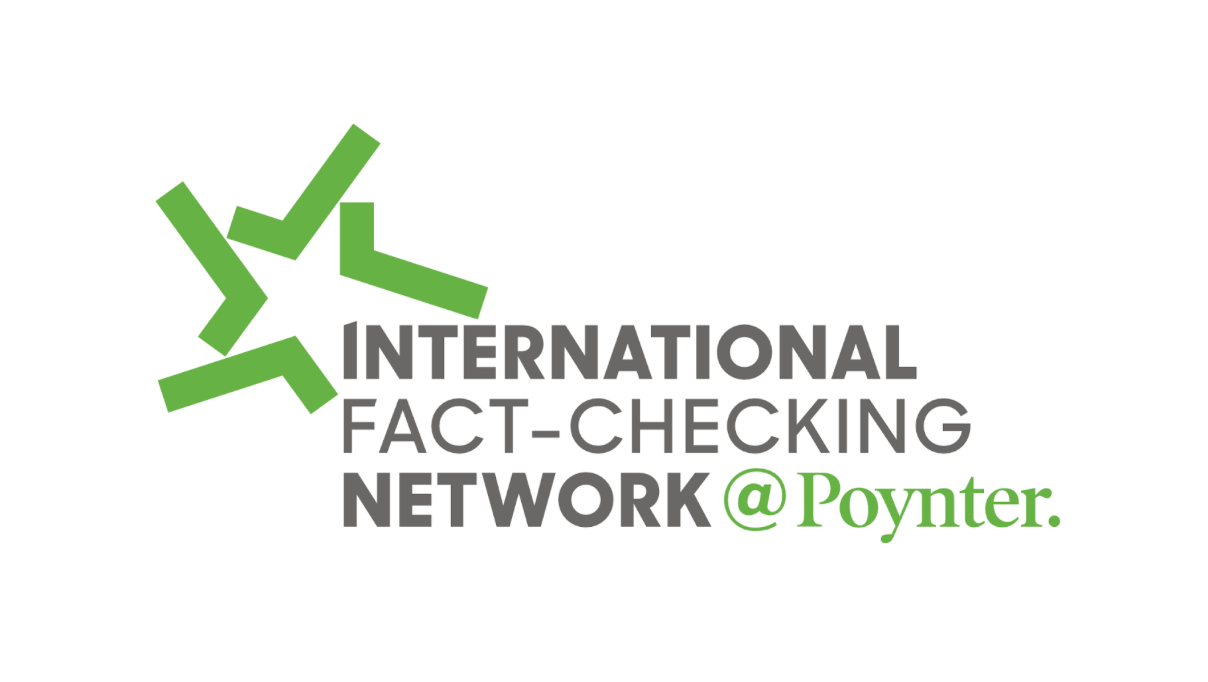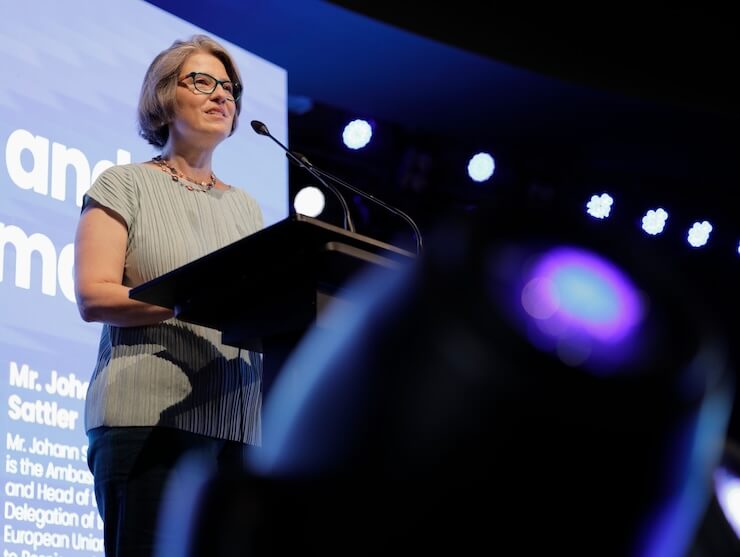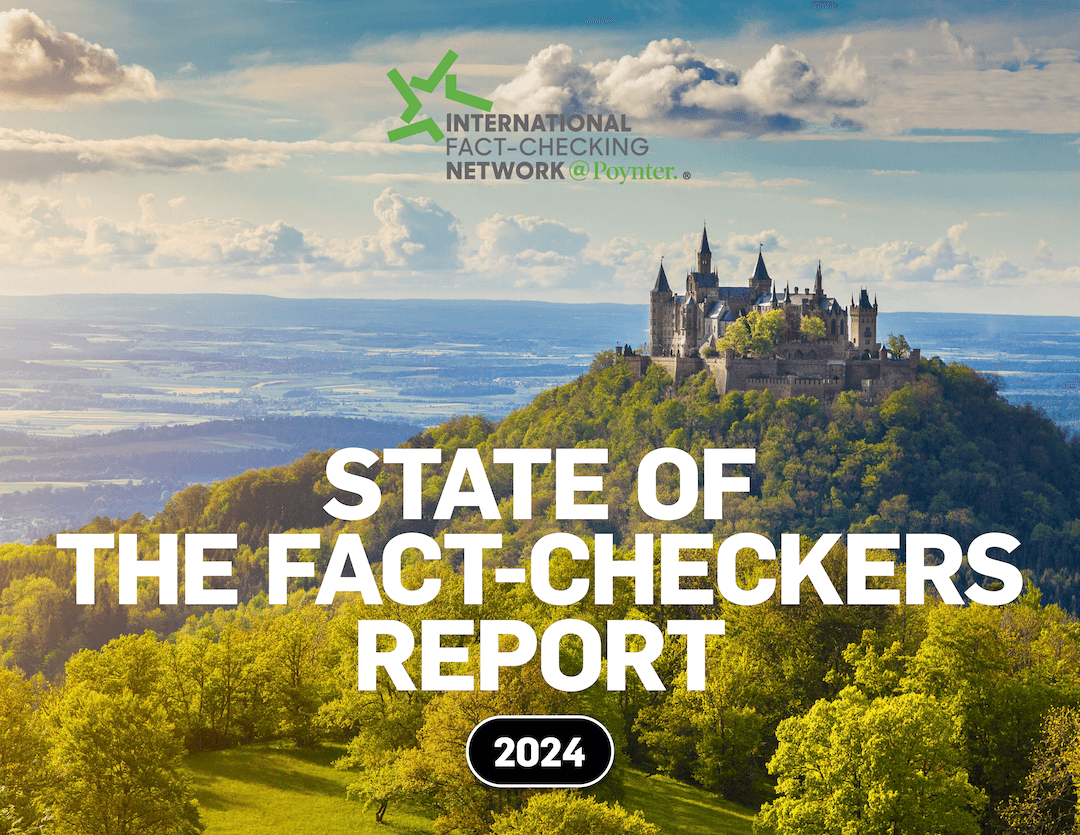Argentinian fact-checking website Chequeado is always looking for ways to broaden its audience. This summer, they decided to try GIFs.
“We wanted to expand our readership from the circle who read us already,” says Executive Director Laura Zommer. In August, spurred on by Editorial Innovation Director Pablo Martin Fernández, they started a collaboration with the website UNO to transform one fact check a week into a GIF.
Unlike previous GIFs by Chequeado, conceived primarily as data visualizations, these aim to entertain. The politicians are caricatured, their expressions changing gradually as their misstatements get exposed.

When Fernández first brought the idea to the newsroom, reactions were mixed. UNO is the digital offshoot of Grupo América, a media conglomerate co-founded by a former politician. Grupo América was not historically devoted to being equidistant from political parties, a key tenet of the nonpartisan fact-checkers’ mission.
Still, Chequeado would have the final say over the text used in the GIFs, so the fact-checkers agreed to a two month pilot. In what can only be described as a good deal, Chequeado gets paid from UNO for participating in this collaboration. In exchange, Chequeado credits them on Twitter, where the site has a strong following. (The GIFs are also uploaded to Facebook as short videos.)
Having an outside company produce the GIFs was also a form of insurance policy for Chequeado.
“We weren’t sure how our community would take the introduction of these GIFs,” Zommer said. “We are usually more serious and formal.” Branding the GIFs as the product of a new partnership created a buffer space, one that would eventually make it easier to walk back the experiment if users rejected this approach.
Fernández says Chequeado’s initial approach was extremely risk-averse. On the first week, the website published two GIFs from opposing sides of the political spectrum at essentially the same time and both “false,” to avoid a semblance that they were targeting one side.
The animations were conceived with this goal in mind too, with Chequeado and UNO opting for a purple background not reminiscent of the colors of any major political party. While the text is as simple as possible, humor is reserved for the animation alone.
With the pilot project over, the GIFs seem to have paid off.
Given that GIF-fed fact checks were shared with essentially the same text twice, first without the animated image and then with it, it is safe to draw some conclusions about reach. A simple comparison shows that GIF-carrying tweets did better every time except once, even though they were published at least a day and sometimes a week after the first tweet and the fact checks themselves.
Figuring out whether this had an effect on overall traffic is harder to measure, says Fernández. Even if it didn’t, using GIFs fits Chequeado’s “distributed” content strategy, which puts an emphasis on publishing directly on channels beyond the website. “We want more pageviews, but we also want people to understand what we are publishing if they don’t click,” he added.
Research shows a lot of retweeting may be happening without any associated clicking. Chequeado’s comprehensive GIFs can therefore help avoid the risk that social promotion of fact-checking with ambiguous messaging ends up spreading the misinformation it is supposed to counter.
Both the design and content of the animations require extensive attention, but Chequeado and UNO are trying to reduce the lag between the publication of the fact check and that of the GIF.
While the first animations took a week to prepare, the process will be reduced to a day or two as all the major politicians — and their reactions to Chequeado’s nine different ratings — get drawn and it becomes just a matter of adapting the GIFs rather than starting from scratch.
With the pilot period over, Chequeado’s partnership with UNO has been renewed. Fact-checkers are also considering hiring someone with the skills to produce additional GIF formats in-house.







